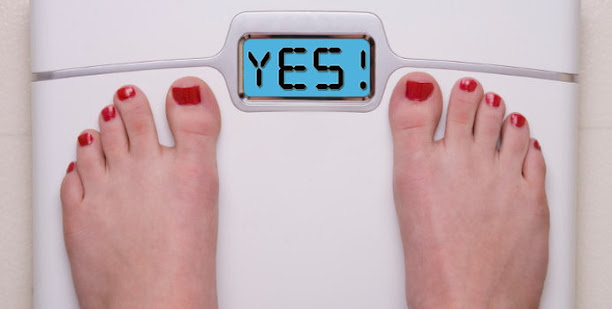mastering anxiety attack management techniques and exercises
Symptoms of Anxiety
Persistent worry, restlessness, irritability, difficulty concentrating, muscle tension, and sleep disturbances are hallmark symptoms of anxiety. Physical manifestations like rapid heartbeat, sweating, trembling, and shortness of breath may also occur.

2. Managing Anxiety Attacks
To manage anxiety attacks, practice deep breathing exercises, mindfulness techniques, and progressive muscle relaxation. Identifying triggers, challenging negative thoughts, and seeking support from a therapist or counselor for coping strategies are essential steps.
3. Best Relaxation Techniques for Anxiety
Effective relaxation techniques include deep breathing exercises, progressive muscle relaxation, guided imagery, meditation, and yoga. Engaging in hobbies, spending time in nature, and listening to calming music can also promote relaxation and stress reduction.
5. Effects of Anxiety on Sleep
Anxiety can disrupt sleep patterns, leading to difficulties falling asleep, staying asleep, or experiencing restful sleep. Racing thoughts, physical tension, and heightened arousal can contribute to insomnia and worsen anxiety symptoms.
6. Differences Between Anxiety and Panic Attacks
While anxiety involves excessive worry and fear about future events, panic attacks are sudden, intense episodes of fear or discomfort accompanied by physical symptoms like chest pain and dizziness. Panic attacks typically peak within minutes and may feel like a life-threatening emergency.
7. Role of Exercise in Reducing Anxiety
Regular exercise, especially aerobic activities like walking, jogging, or swimming, promotes the release of endorphins, improves mood, and reduces stress levels. Exercise also provides a distraction from anxious thoughts and enhances overall well-being.
8. Common Medications for Treating Anxiety
There are some medications which can help to treat anxiety as well as panic attack but must be Consulting with a healthcare professional helps determine the most suitable medication based on individual needs.
9. Supporting Someone with Anxiety
Supporting a friend or family member involves listening without judgment, offering reassurance, and helping them access professional support if needed. Educating oneself about anxiety and being patient and understanding can also be beneficial in providing effective support.
10. Long-Term Effects of Untreated Anxiety
Untreated anxiety can lead to chronic stress, impaired functioning in daily life, and increased risk of developing other mental health conditions like depression or substance abuse disorders. Early intervention and effective treatment are crucial for preventing these potential long-term consequences.Persistent worry, restlessness, irritability, difficulty concentrating, muscle tension, and sleep disturbances are hallmark symptoms of anxiety. Physical manifestations like rapid heartbeat, sweating, trembling, and shortness of breath may also occur.
2. Managing Anxiety Attacks
To manage anxiety attacks, practice deep breathing exercises, mindfulness techniques, and progressive muscle relaxation. Identifying triggers, challenging negative thoughts, and seeking support from a therapist or counselor for coping strategies are essential steps.
3. Best Relaxation Techniques for Anxiety
Effective relaxation techniques include deep breathing exercises, progressive muscle relaxation, guided imagery, meditation, and yoga. Engaging in hobbies, spending time in nature, and listening to calming music can also promote relaxation and stress reduction.
5. Effects of Anxiety on Sleep
Anxiety can disrupt sleep patterns, leading to difficulties falling asleep, staying asleep, or experiencing restful sleep. Racing thoughts, physical tension, and heightened arousal can contribute to insomnia and worsen anxiety symptoms.
6. Differences Between Anxiety and Panic Attacks
While anxiety involves excessive worry and fear about future events, panic attacks are sudden, intense episodes of fear or discomfort accompanied by physical symptoms like chest pain and dizziness. Panic attacks typically peak within minutes and may feel like a life-threatening emergency.
7. Role of Exercise in Reducing Anxiety
Regular exercise, especially aerobic activities like walking, jogging, or swimming, promotes the release of endorphins, improves mood, and reduces stress levels. Exercise also provides a distraction from anxious thoughts and enhances overall well-being.
8. Common Medications for Treating Anxiety
There are some medications which helps to reduce anxiety disorder and professional helps determine the most suitable medication based on individual needs.
9. Supporting Someone with Anxiety
Supporting a friend or family member involves listening without judgment, offering reassurance, and helping them access professional support if needed. Educating oneself about anxiety and being patient and understanding can also be beneficial in providing effective support.
10. Long-Term Effects of Untreated Anxiety by yoga
Untreated anxiety can lead to chronic stress, impaired functioning in daily life, and increased risk of developing other mental health conditions like depression or substance abuse disorders. Early intervention and effective treatment are crucial for preventing these potential long-term consequences.
Types of Yoga Beneficial for Anxiety Disorders Hatha Yoga: Focuses on gentle movements and breathing exercises, promoting relaxation and stress reduction. Vinyasa Yoga: Involves flowing sequences of poses coordinated with breath, helping to release tension and quiet the mind. Restorative Yoga: Incorporates supported poses held for extended periods, allowing for deep relaxation and easing anxiety symptoms. Yin Yoga: Targets connective tissues with passive stretches, fostering introspection and inner calm. Pranayama (Breathwork): Various breathing techniques such as diaphragmatic breathing and alternate nostril breathing help regulate the nervous system and alleviate anxiety. Mindfulness Meditation: Integrates mindfulness practices into yoga sessions, cultivating present-moment awareness and reducing anxious thoughts.


Comments
Post a Comment